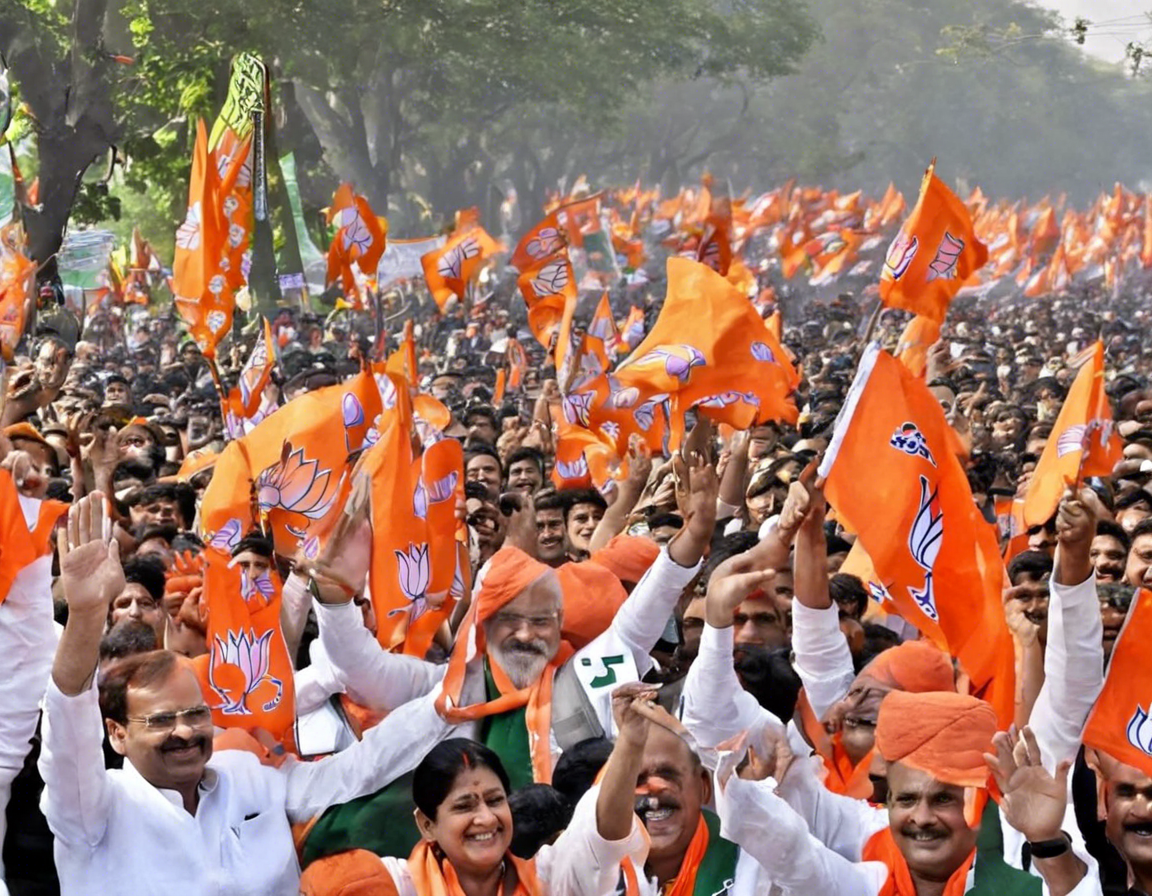The Bharatiya Janata Party (BJP)-led National Democratic Alliance (NDA) emerged victorious in the third phase of the Lok Sabha elections, securing 80 seats out of the total 163 seats contested. This significant win not only reflects the political strength and influence of the BJP but also indicates the continuing support for the ruling party and its allies across the country.
Key Takeaways from the Third Phase Results:
1. Stronghold Retention: The BJP managed to retain many of its stronghold seats in states like Gujarat, Karnataka, and Maharashtra, showcasing the party’s ability to maintain its hold in key regions.
2. New Gains: The NDA made significant inroads in states like Madhya Pradesh, Rajasthan, and Uttar Pradesh, where it secured a substantial number of seats, indicating a growing popularity and support base for the alliance.
3. Opposition Challenges: The results also highlight the challenges faced by the opposition parties in countering the BJP and its allies, as several key opposition candidates were defeated in this phase.
4. Regional Dynamics: Regional parties played a crucial role in this phase, with a number of seats being won by regional players in states like Odisha, West Bengal, and Telangana, emphasizing the diverse political landscape of India.
5. Voter Turnout: The voter turnout in the third phase was encouraging, with a large number of people coming out to exercise their democratic right despite the challenges posed by the COVID-19 pandemic.
6. Impact on National Politics: The outcome of the third phase is expected to have a significant impact on the overall political scenario in the country, setting the stage for the final results and the formation of the new government.
Challenges and Opportunities for the Winning Parties:
With the NDA securing a substantial number of seats in the third phase, the winning parties now face both challenges and opportunities as they work towards consolidating their position and preparing for the upcoming phases of the elections.
1. Governance Mandate: The strong showing by the NDA in this phase provides a clear mandate for the alliance to continue its governance agenda and work towards fulfilling its promises to the people.
2. Coalition Management: As a coalition government, the NDA will need to focus on managing its alliance partners effectively, addressing their concerns, and ensuring a cohesive approach to governance.
3. Policy Implementation: With a renewed mandate, the winning parties have an opportunity to implement key policy initiatives, drive economic growth, and address pressing social issues.
4. Opposition Scrutiny: The BJP and its allies will also face increased scrutiny from the opposition, media, and civil society, requiring them to maintain transparency and accountability in their decision-making processes.
5. Electoral Strategy: The results of the third phase will influence the electoral strategy of all parties in the upcoming phases, with a focus on consolidating support, addressing voter concerns, and reaching out to undecided voters.
FAQs (Frequently Asked Questions):
1. What was the voter turnout in the third phase of the Lok Sabha elections?
– The voter turnout in the third phase of the Lok Sabha elections was encouraging, with a significant number of people participating despite the challenges posed by the COVID-19 pandemic.
2. Which states saw significant gains for the NDA in this phase?
– States like Madhya Pradesh, Rajasthan, and Uttar Pradesh witnessed significant gains for the NDA, highlighting the alliance’s growing popularity in these regions.
3. How do the results of the third phase impact the overall political landscape of India?
– The results of the third phase are expected to have a significant impact on the overall political scenario in the country, setting the stage for the final results and the formation of the new government.
4. What are the key challenges and opportunities for the winning parties in the third phase?
– The winning parties face challenges in governance mandate, coalition management, policy implementation, opposition scrutiny, and electoral strategy, while also having opportunities to drive growth and address pressing issues.
5. How do regional dynamics play a role in the Lok Sabha elections?
– Regional parties play a crucial role in the Lok Sabha elections, securing seats in their respective states and contributing to the diversity of the political landscape in India.
